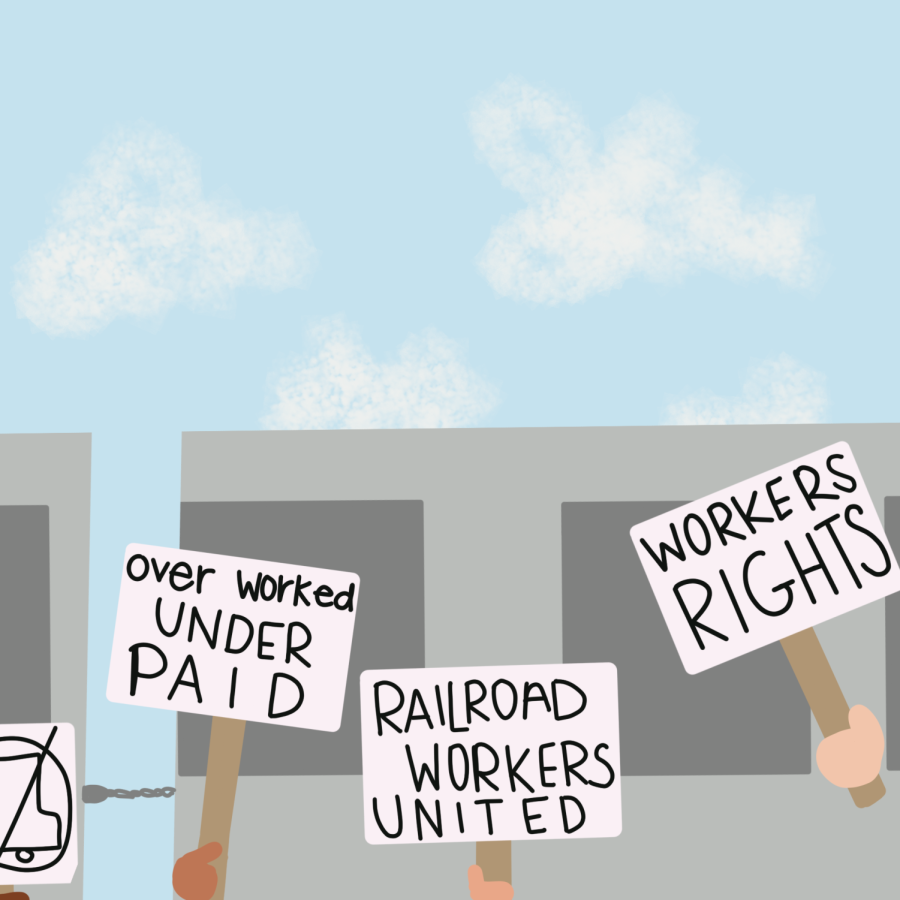Worked to death: Rail union threatens strike
September 27, 2022
Without regulation, corporations have shown time and time again that they will take advantage of their workers by any means. Recently, the Railroad Workers United (RWU) has called for action after Aaron Hiles, a locomotive engineer, died on the job. His death could have been avoided if not for a new attendance policy that was put into effect months before his death. The policy forced him to reschedule a doctor’s appointment and come to work. A few weeks later, he passed away due to a heart attack while working. Despite the tragic outcome, the policy that led to Hiles’ passing is still in place.
Hiles’s death has led to the RWU threatening to go on strike, which prompted a 20-hour meeting between the department of labor, rail companies and rail unions, where they eventually came to an agreement. Within 24 hours of the agreement, President Biden stated that “This is a win for tens of thousands of rail workers and for their dignity and the dignity of their work. It’s a recognition of that.” But some workers feel that the changes are not enough. The feeling of not being properly compensated for your hard work and time is one that is currently shared by the entire working class. Things like quiet quitting and increasing unemployment rates serve as further evidence that people are fed up with being taken advantage of by corporations owned by billionaires. The current regulations imposed on mega-corporations are clearly not sufficient in protecting the rights of workers.
The agreement has not been approved by all the unions that make up RWU, which means a rail strike is still on the table. These events often reflect the overall state of labor unions and workers’ rights, and it is clear that tension is building. Without addressing topics like minimum wage and inflation, workers will continue to feel taken advantage of by large corporations and the government. The ongoing battle between the RWU and the rail companies exemplifies this tension and the extent people will go to. Hopefully, the unions stay strong and fight for their rights against the greedy corporations that quite literally worked a man to death.
Although the death of Hiles was an extremely tragic event, he did not die in vain. Even after his time on earth, the impact his death will have on the pay and work of thousands of rail workers across North America will help prevent something like this from ever happening again. Furthermore, one can hope that this event can lead to even more significant changes like raising the minimum wage and protecting workers’ health across all professions because every human deserves fair pay and good health.













